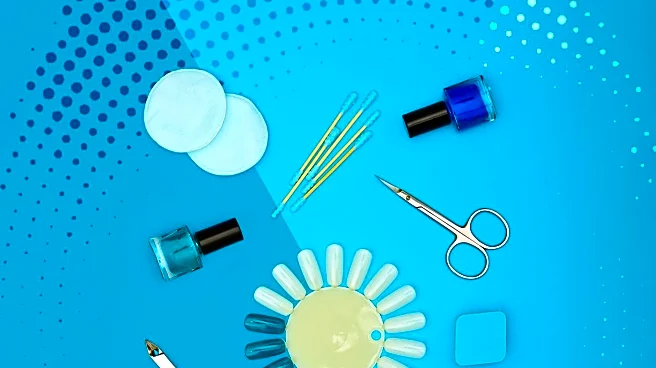What's Happening?
A recent study has examined the effects of various root canal irrigants on the mechanical properties of nickel-titanium (NiTi) endodontic instruments. The research focused on three types of heat-treated NiTi instruments, each with identical geometry but
different thermal treatments: austenitic, hybrid, and martensitic phases. The study tested the impact of three irrigants—3% sodium hypochlorite (NaOCl), 17% ethylenediaminetetraacetic acid (EDTA), and a NaOCl-HEDP combination—on these instruments. The instruments were divided into groups and exposed to the irrigants at different temperatures and durations. The study aimed to assess how these conditions affected the instruments' bending and torsional resistance, using ISO 3630-1 standards for testing. The findings are expected to provide insights into the durability and performance of NiTi instruments under various clinical conditions.
Why It's Important?
The study's findings are significant for dental professionals who rely on NiTi endodontic instruments for root canal procedures. Understanding how different irrigants and thermal treatments affect the mechanical properties of these instruments can inform better clinical practices and improve patient outcomes. The research highlights the importance of selecting appropriate irrigants to maintain the integrity and performance of NiTi instruments, which are crucial for effective root canal treatments. This knowledge can lead to enhanced safety and efficiency in dental procedures, potentially reducing the risk of instrument failure and improving the overall quality of dental care.
What's Next?
Further research may explore additional variables that could influence the mechanical properties of NiTi instruments, such as different concentrations of irrigants or alternative thermal treatments. Dental professionals and manufacturers might consider these findings to optimize the design and use of endodontic instruments. The study could also prompt the development of new guidelines or recommendations for the use of irrigants in clinical settings, ensuring that dental practitioners are equipped with the best tools and knowledge for patient care.
Beyond the Headlines
The study raises questions about the long-term implications of using certain irrigants on NiTi instruments, particularly regarding their potential to cause corrosion or other forms of degradation. This could lead to a broader discussion within the dental community about the balance between effective cleaning and the preservation of instrument integrity. Additionally, the research may influence the development of new materials or coatings for NiTi instruments that are more resistant to chemical interactions, further advancing the field of endodontics.
















